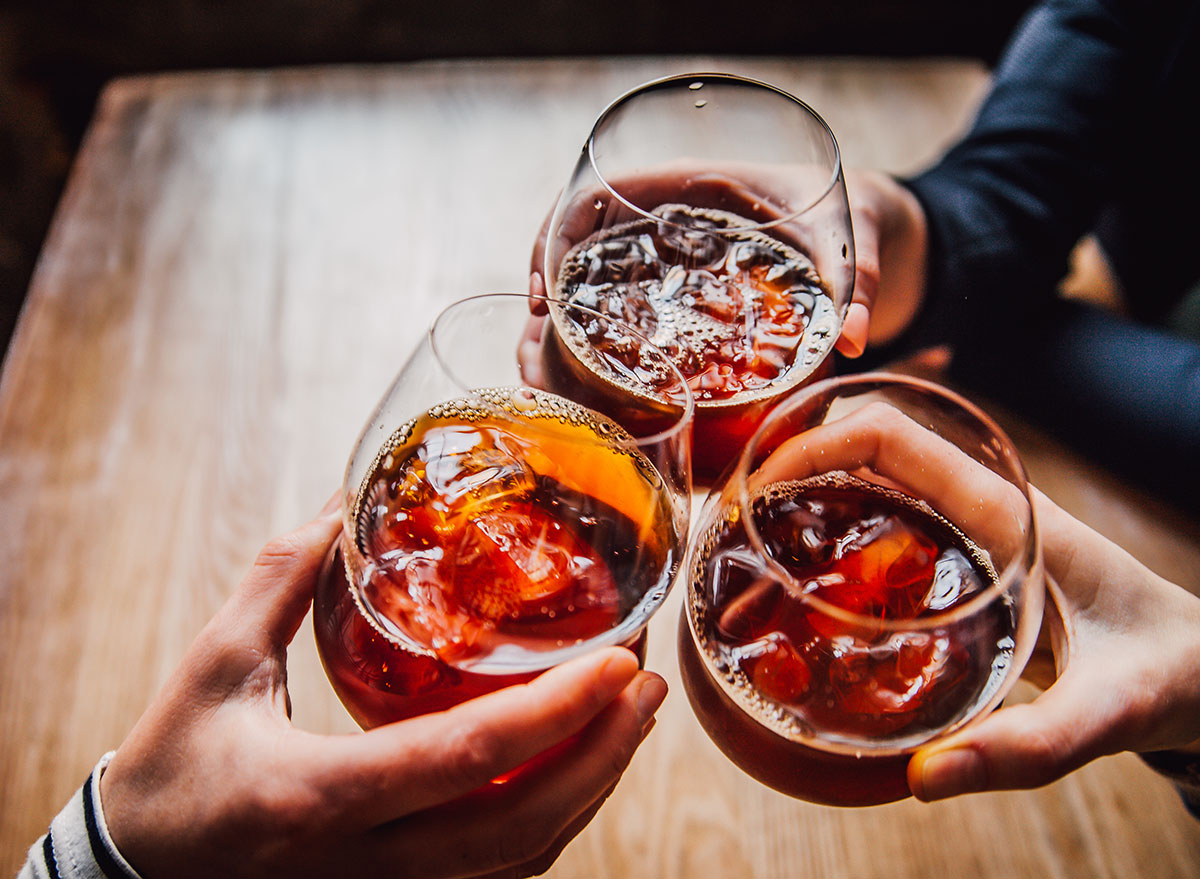One Major Side Effect of Drinking Too Much Alcohol, Says Science

Like all aspects of a balanced diet, we know that over-boozing isn't in our best interest. Alcohol impacts almost every system in our body, hence the hit-by-a-train feeling when we end up drinking too much alcohol at once.
First and foremost, alcohol impacts digestion. Alcohol actually delays digestion by slowing stomach emptying. This mechanism has serious downstream consequences when repeated long term.
While slower digestion may seem benign on the surface, it is associated with many serious effects like weight gain, decreased absorption of nutrients, and digestive distress.
How does alcohol slow down our digestive system? Because alcohol is considered a toxin to our system, the body prioritizes the digestion of alcohol over food. Thus, digestion significantly slows and does not resume until the alcohol has been processed from our system.
This phenomenon, paired with a high-calorie meal, can halt digestion and increase weight gain. When you consider that oftentimes overindulging in boozy beverages is coupled with high-calorie comfort foods, it's no wonder how weight changes happen.
To make matters more serious, decreased digestion directly correlates to decreased absorption of nutrients. In fact, alcohol depletes many nutrients on its own even before considering the effects of slow stomach emptying. Decreased absorption from alcohol consumption can lead to imbalanced nutrition and can contribute to digestive distress. Many of us have experienced the morning-after effect leaving us running to the bathroom in a hungover state. Oftentimes, digestion has resumed to its usual pace by morning, but it leaves us with a sense of urgency as the night before is finally catching up to us.
If alcohol suddenly seems like it spawns heavy consequences, you might be wondering what life would look like with less imbibing. If you're curious, here's what happens to your body when you give up alcohol.








